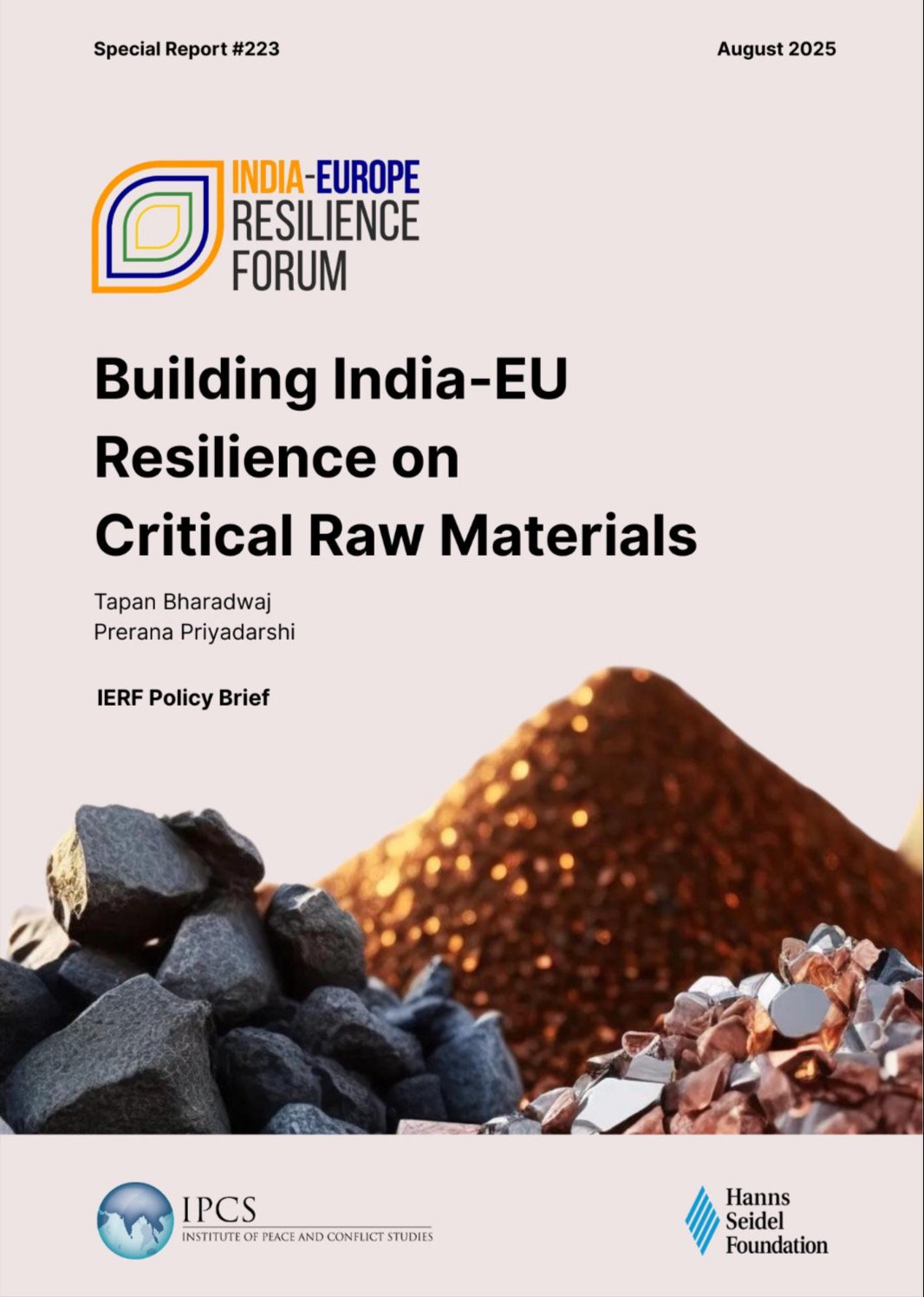Building India-EU Resilience on Critical Raw Materials
The India–Europe Resilience Forum (IERF), established in 2025, was conceived through the collaborative efforts of four institutions: the Institute of Peace and Conflict Studies (IPCS), the Hanns Seidel Foundation (HSF) India, the Centre for Social Research (CSR), and the Centre for Educational & Social Studies (CESS)/Chanakya University (CU). Initially set up for a period of three years, the IERF aims to foster policy dialogue between key stakeholders in India and Europe on common, ‘non-traditional’ security challenges. One such subject area is critical raw materials (CRM), with both asking the question, “How do we achieve resilience in CRM?”
CRMs are the building blocks of all modern industry, including but not limited to defence, medicine, and clean energy. India and Europe—specifically, the EU and its member states—face significant challenges in this domain primarily due to supply chain constraints. This can slow economic growth and the clean energy transition, derailing the fight against climate change. The first roundtable that accompanied the IERF launch was thus designed to achieve clarity on:
1. What ‘resilience in CRM’ means for India and the EU;
2. Why ‘resilience’ is important; and
3. What steps are necessary for meaningful cooperation.
The discussion focused on a set of policy pathways, suggestions for improvements in existing policy, and new recommendations on how to address the geopolitical, strategic, and trade and investment bottlenecks surrounding CRM resilience in the context of India-EU cooperation. This IERF Policy Brief authored by Tapan Bharadwaj and Prerana Priyadarshi distills the roundtable’s key insights into five policy recommendations.
Read More


